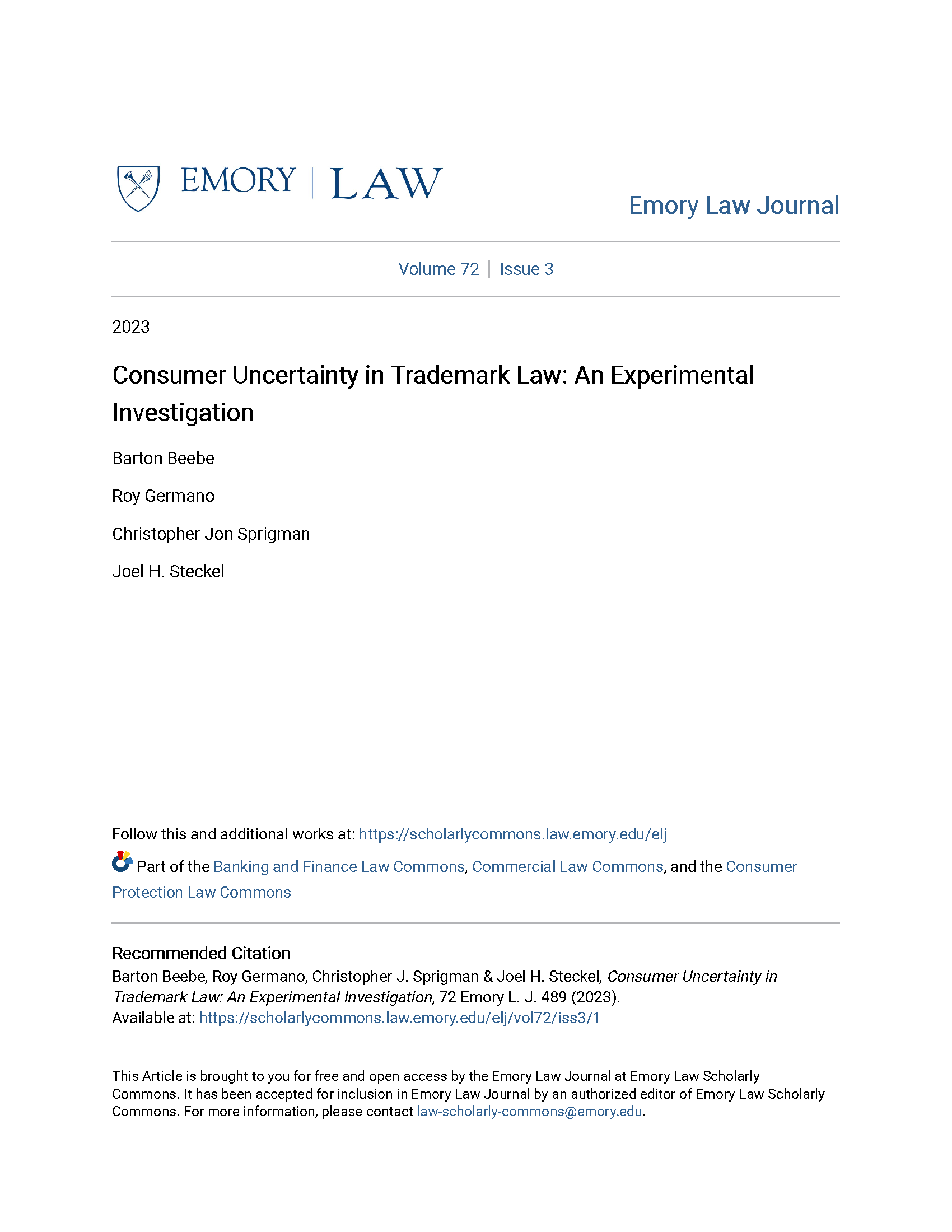Consumer Uncertainty in Trademark Law
Barton Beebe, Roy Germano, Chris Sprigman, Joel H. Steckel
Nearly every important issue in trademark litigation turns on the question of what consumers in the marketplace believe to be true. To address this question, litigants frequently present consumer survey evidence, which can play a decisive role in driving the outcomes of trademark disputes. But trademark survey evidence has often proven to be highly controversial, not least because it has sometimes been perceived as open to expert manipulation. In this Article, we identify and present empirical evidence of a fundamental problem with trademark survey evidence: while the leading survey formats in trademark law test for whether consumers hold a particular belief, they do not examine the strength or the varying degrees of certainty with which consumers hold that belief. Yet as the social science literature has long recognized, the strength with which consumers hold particular beliefs shapes their behavior in the marketplace, and thus it should also shape how trademark disputes play out in the courtroom. Through a series of experiments using the three leading trademark survey formats (the so-called Teflon, Eveready, and Squirt formats), we show the remarkable degree to which these formats as conventionally designed overlook—or suppress—crucial information about consumer uncertainty. We further demonstrate how low-cost, easily administered, and relatively simple modifications to these formats can reveal that information.

We explain both the practical and theoretical implications of our findings. As a practical matter, trademark survey evidence that shows only weakly held beliefs (or that does not even test for belief strength) should not, without more, satisfy a litigant’s burden of persuasion on the issue addressed by the survey. Furthermore, in line with courts’ growing efforts in intellectual property cases to tailor injunctive relief, survey evidence showing only weakly held mistaken beliefs may provide courts with the opportunity to fashion more limited forms of relief short of an outright injunction. As a theoretical matter, trademark survey formats that reveal the true extent of consumer uncertainty in the marketplace may finally force trademark law and policy to confront normative questions it has long left unanswered going to exactly what kind of harm trademark law is meant to prevent.
